The painful lessons learned from layoffs
In Trash Goblin, players chip away at mottled chunks of mud to uncover the knick-knacks buried within. Then they scrub them until they shine, before selling these trinkets to lovers of the offbeat and unusual.
It’s a fitting fantasy for a game which itself was born from a muddy, ugly situation that its creators made the best of – while doing their utmost to look after their team.
Back in 2023, Spilt Milk Studios initially pitched Trash Goblin to 20 publishers they thought would be a good fit for the game. “That was the turning point year, right? That was when it all started going a bit wonky in terms of availability of funds,” says creative director Andrew Smith.
By the end of the year, they’d pitched to 76 publishers. Two offered terms, and one entered contract negotiations. “We were talking about this wording and that wording in the contract, and we thought it was going to be done and signed,” Smith says. “But in that meeting, they pulled out completely. They had their reasons, and it’s fine, they have to protect their business. But obviously that was a big blow.”
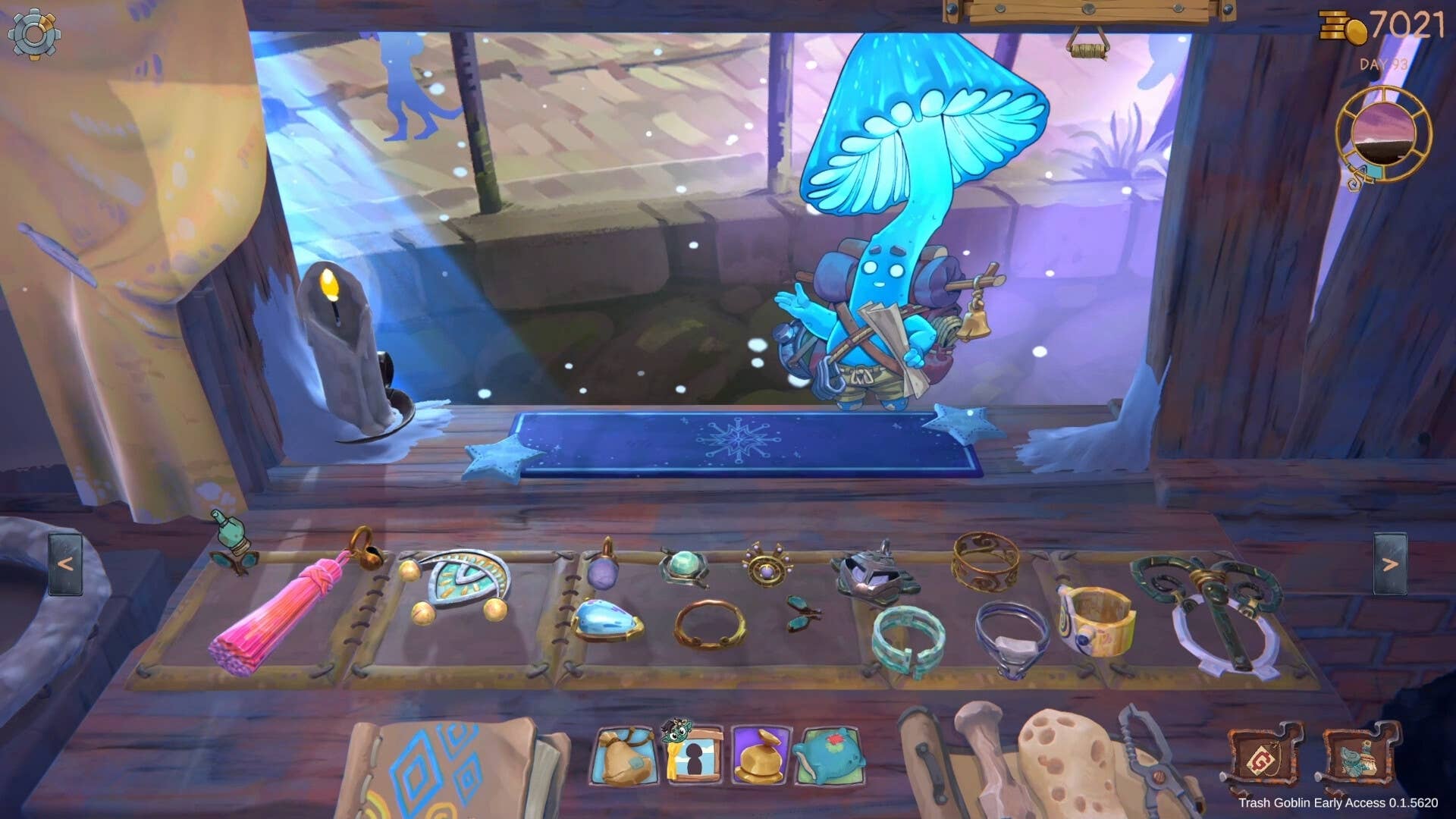
Plan B became Plan A, and Spilt Milk hustled to launch a Kickstarter. It was a period of existential uncertainty, in which the studio let two staff go, and chose not to extend the contract of a freelance artist. “The Kickstarter succeeded, but it wasn’t a runaway success,” Smith says.
On the path to Trash Goblin’s early access launch, Spilt Milk’s fortunes were gently buoyed by a UK Games Fund application and a work-for-hire project. The two team members who had been let go were rehired three months later, “with all the appropriate amount of time in lieu paid back or compensated for.” The freelance artist was made an employee.
Though Trash Goblin has only been a modest hit, the team has ultimately managed to stay together, and the studio is now in a position to look at hiring another full-time programmer.
“We did hire the people who were made redundant back,” product and strategy director Nicholas Lovell says. “People might say, ‘You should have carried that cost yourself’. We just couldn’t, it would have killed the company. I’m not sure that it’s a perfect outcome, because individuals were without money for a period of time. But what we tried to do was the right thing that would save the company in either outcome – Kickstarter works, Kickstarter doesn’t work.”
“We’re never going to be pointed at as a model for how to do this, because it’s not a wild success,” Smith says. “And we’re never going to be pointed at as a cautionary tale, because it didn’t explode. We’re in that bit where most people live, and it isn’t talked about.”
Today’s games industry is one in which grand plans have been put on hold, and sudden studio closures are common. It’s perhaps those who are finding ways to muddle through – prioritising the protection of their teams and the institutional knowledge of their studios as best they can – that we ought to be studying.
Too much, too soon
Aurora Punks, a Swedish publisher and co-dev partner that was founded by Fatshark’s Robert Bäckström, expanded dramatically during the COVID years.
After starting out in the pandemic with a team of four, the company grew very quickly to almost 50 people in 2022. “Then we had to do a very painful pivot,” Bäckström says. “And had to lay off almost 30 people at different stages.”
The company continues to own and invest in multiple teams, but has taken a more cautious approach since. “For us now, we’ll always try to create a baseline where we have enough revenue coming in for that specific team to sustain themselves.”
“It could even be that we only do work-for-hire for a time to build a war chest”
Robert Bäckström, Aurora Punks
Bäckström places the blame for a lot of unsustainable development on a single-stream approach to revenue. “Some of these companies that you see having issues and layoffs today, a core problem for them is the structure,” Bäckström says. “They’ve been created around one product, based on an idea that, ‘If we get this far, we release the game and it will be commercially successful and we’ll get more money for the next step.'”
The trouble is that such a structure relies on a string of consecutive strokes of luck. And if any one of them fails to materialise, the company is plunged into a state of emergency. Bäckström believes that studios should instead think more like publishers. “It’s the portfolio strategy,” he says. “You need to have enough potential revenue streams to always be balanced.”
Where do those revenue streams come from? “For a studio I would say most likely consulting or work-for-hire is the way ahead,” Bäckström says. “It could even be that we only do work-for-hire for a time to build a war chest. I think this is how to make sure you’re hopefully in a situation where you never have to lay off people.” Once money is tight, a studio’s options become more and more limited. “You need to be very proactive in that sense.”
In the last couple of years, Aurora Punks has leaned into premium mods for games like Fortnite and Ark: Survival Ascended to ensure it isn’t completely reliant on large projects. “The client shut down the project our level designer was working on, so what can he do instead? Can he maybe go back and create this update for this mod we have for Ark? Let’s spend two weeks on that.”
Earlier this year, Aurora Punks put out Necrotic Dominion, a paid Ark mod that adds a new map and spellcasting combat system to the perennially popular survival game.
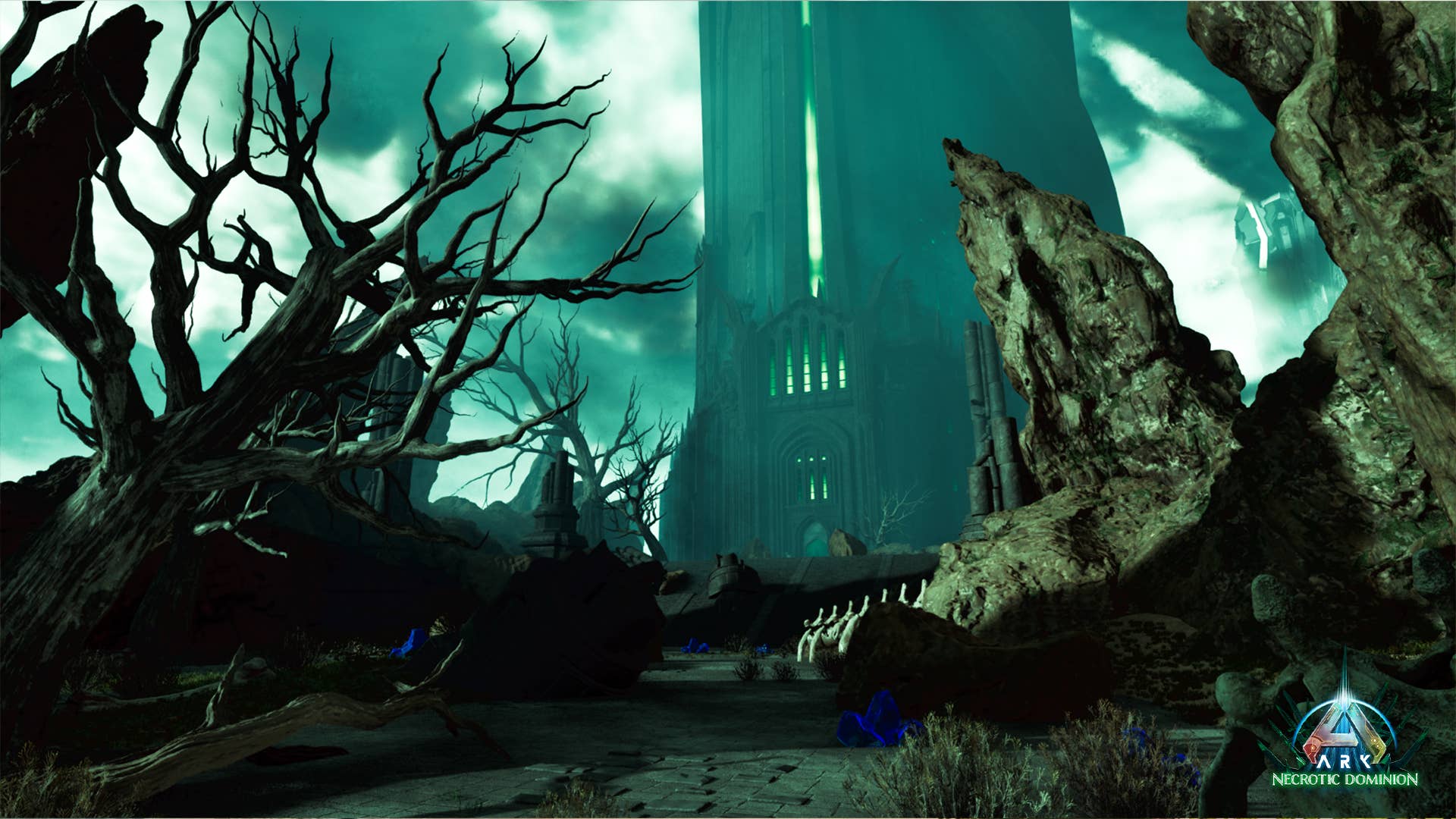
“It’s not selling to support the whole team, maybe not even selling to support [the designer’s] salary, but it offsets some of the costs,” Bäckström says. “If you have this big team, there’s always going to be a lot of cost sunk into people just waiting for the next thing to start.”
In that context, having a number of small yet profitable passion projects that individual team members can return to during downtime is an enormous boon. Particularly when there’s no need to wait on external approval from a partner or publisher.
“It takes a lot of management time, because you have to have very clear goals,” Bäckström says. “But if you get there, and I’m not saying we are fully, I think that’s a super power for a studio.”
Slow and steady
Taking a more sustainable course might mean a company makes slower progress on riskier and more ambitious games. That requires some understanding and patience from staff – particularly if some are assigned to consulting and work-for-hire projects while others enjoy more creative agency.
“I think culture is the thing,” Bäckström says. “It’s being able to let everyone celebrate together in the success or share the challenges if something goes wrong. For us at Aurora Punks, for a long time we have had single developers that really put in the work as consultants, bringing a lot of money in. We need to celebrate them.”
The need for multiple revenue streams has been a lesson for Spilt Milk Studios, too. “Through 2023 we were behaving like a classic indie,” Lovell says. “The only way of survival was to find a person in a suit to say yes.”
They don’t normally wear suits anymore, he acknowledges. “But it was a single decision-maker at a publisher or a funder at the UK Games Fund. We weren’t selling to consumers, we were selling to a business person. And that has the joy that one person can give you a lot of money, but it has the weakness that one person can take away all that money.”
Moving away from that zero-sum mode of survival has involved a fundamental mental shift. “Our job is not to persuade publishers,” Lovell says. “Our job is to persuade consumers.”
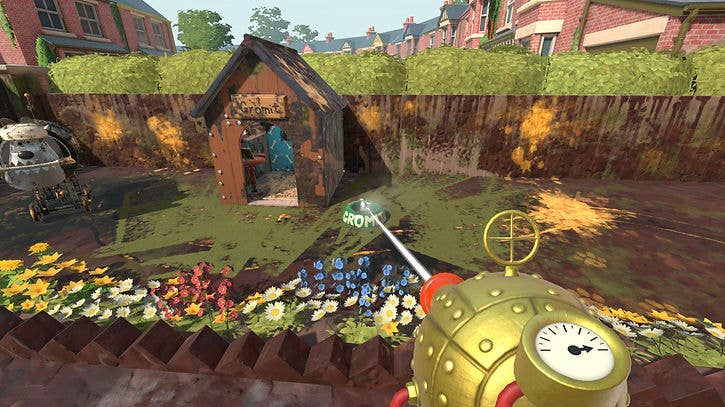
Spilt Milk’s plan is to grow modestly in size, and to rely on a pool of trusted contractors to meet the specific needs of each game.
“We want to have this team of ten people per project who have worked with each other for a long time, and know how Spilt Milk works,” Lovell says. “And we might grow that up to three teams of ten. We might not, but we’ll get bigger than we are now, slowly.”
At the core will be a team who, off the back of Trash Goblin, have specialised expertise in how to deliver cozy games that audiences want. “If we scaled up and things went wrong, we’d then perhaps have to cut too hard and lose some of that institutional knowledge,” Lovell says.
“Anytime you overhire, you are increasing the chances the game gets made on time, but also increasing the chances that you might run out of runway. You’re decreasing operational risk but increasing financial risk.”
Not going bust, in Lovell’s view, is all about making a clear-eyed evaluation of which kind of risk is more dangerous to your studio. “That’s what we’re trying to do, with this idea of staying small-to-medium size, working with freelancers, and making sure we have multiple revenue streams which are largely driven by consumers,” he says.
“And then if a person in a suit comes along and offers us lots of money to make a game we really want to make, we’d absolutely say yes. But we don’t want to be dependent on them for our survival.”

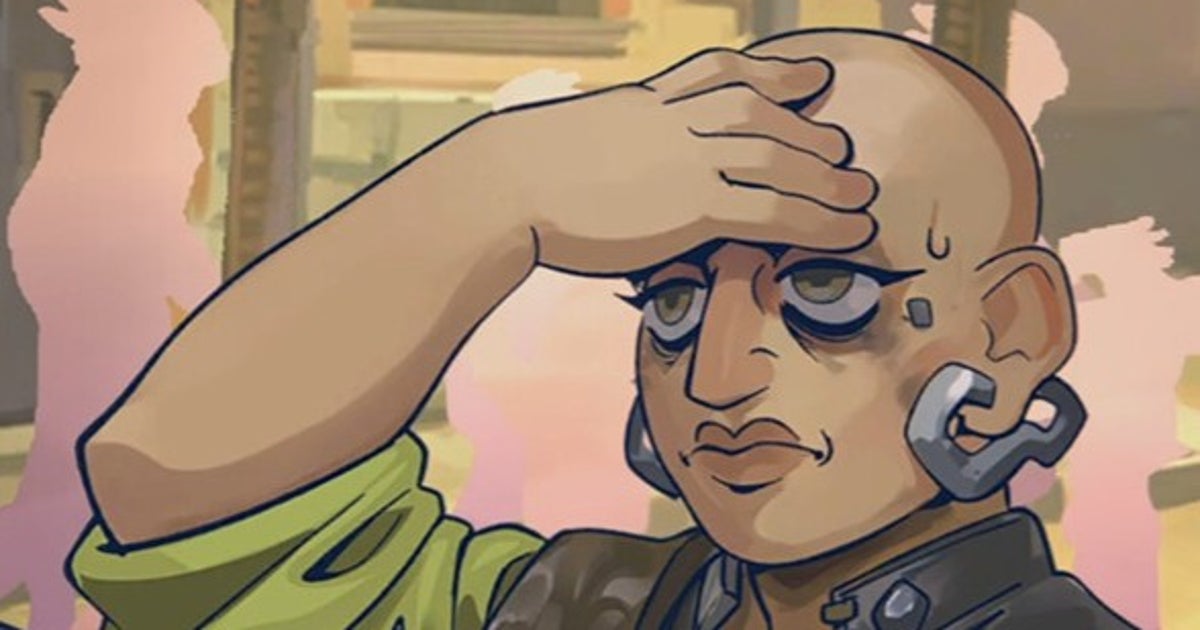


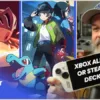



Add comment